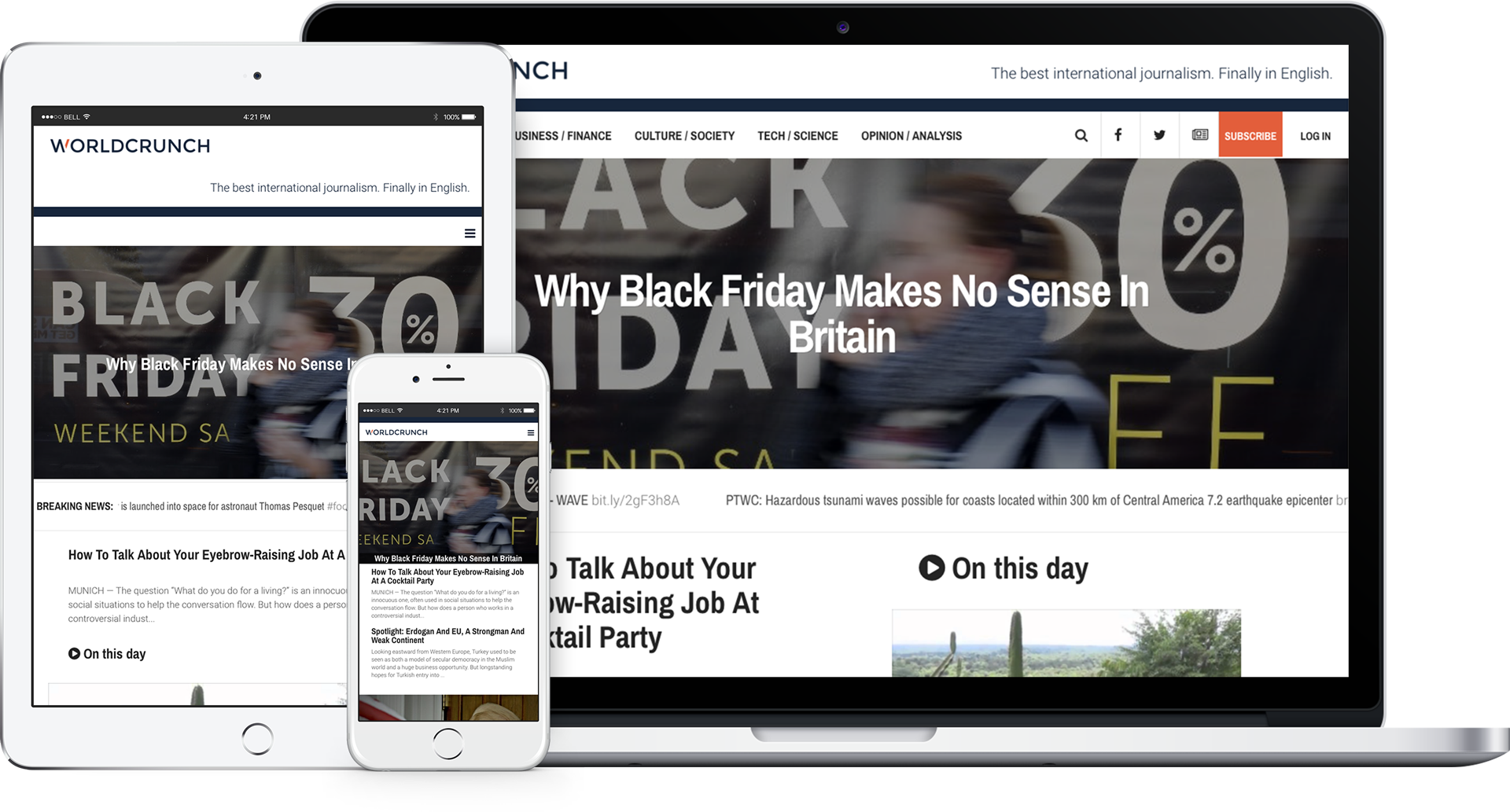The cards for this spring's French presidential election have been drastically reshuffled this past week. Favored since November to win the race for the Elysée palace, center-right candidate François Fillon and his British wife Penelope have found themselves embroiled in an embezzlement scandal that might even force him out of the campaign. Following the decision by current center-left President François Hollande not to stand for a second term, his Socialist party on Sunday elected an inexperienced and quasi-utopian Benoît Hamon as its candidate.
Much can still happen between now and the first of two rounds of voting, on April 23. Still, many insiders now expect a run-off between the far-right nationalist Marine Le Pen and a slick 39-year-old first-time candidate, Emmanuel Macron, who served as Hollande's economy minister. All the French drama, of course, comes after two of the most shocking election results in memory: the Brexit vote and Donald Trump's victory. So all eyes will now shift to France to see what modern democracy holds in store for us next — and who will "wish la bienvenue" when President Trump comes marching into Paris for the first time ...
To whet the world's appetite, we have imagined two very different scenarios of how it all could look, sound and smell after the French voters have their say.
October 7, 2017*
They called him the anti-Trump. And indeed, in many respects, he was. Emmanuel Macron, the youngest president in French history, against the oldest American ever to take over the White House. A former Rothschild banker, a young wolf of the finance world, contrasted with a real-estate mogul who got his start in the outer New York borough of Queens and made his money with bricks and mortar. Macron, the polished purveyor of 21st century globalism — a response to Trump's raw nationalistic rhetoric of isolationism.
But the two also had a lot in common. Like Trump, Macron won by positioning himself outside of the political party system and by describing himself as anti-establishment, while being its most accomplished embodiment. Like Trump, he inherited a divided country, beset by an identity crisis and growing inequalities. Like Trump, he saw politics essentially as a game of taking risks and striking deals. And before they met for the first time on the porch of the Elysée palace, both men were very much aware that their poker match was only just beginning.
Of course, Macron had been generous, though always cautious, in his criticism of the man in the White House during his successful campaign. The French and European media had been particularly enchanted when their blue-eyed boy joked that "the best way for Trump to keep buying his Italian suits is to work together with the EU. We can even find one that fits him better!"
Obviously, Trump didn't let the quip stand, replying in a tweet sent at 2.54 a.m. (that's 8:54 a.m. Paris time. Perfect!) "You're right Froggy. From now on, only American suits!"
Trump clearly had hoped for Marine Le Pen to defeat Macron in the second round of the election. But after the results had come in, showing the Front National leader below 45%, he tried to convince himself that he could just as well take advantage of the young Frenchman's lack of experience and vision. He was both right and wrong.
Their contempt for one another was only matched by their mutual admiration, from one money man to another
Macron's big idea was that since Trump was so intent on re-industrializing America, the EU — and France in particular — should go the opposite direction and fully embrace the "uberization" of the economy. By canceling the country's 35-hour working week and encouraging freelancing, even while slashing corporate and wealth taxes, Macron had already discarded the French labor movement he'd used to keep Le Pen from power. It was the groundwork necessary to attract investors and tech companies, worried by the U.S. Muslim ban and the rising tensions between Washington and Beijing. Meanwhile, the Macron-Merkel "Macrel" couple was also initiating similar free-trade negotiations with China and other Asian countries in the hope of turning Europe into the world's hub for freelance services. A launching pad for the rare winners of globalization, a ticket toward a new kind of underclass for the rest.
Increasingly pragmatic, Trump saw real opportunity, confident that the biggest American corporations would rather repatriate their overseas funds, thanks to his one-off tax holiday, than move to France — especially after the latest terror attack. By the end of the not-so-romantic weekend in Paris, their contempt for one another was only matched by their mutual admiration, from one money man to another. The leaders of U.S. and France, and more widely Europe, were now fully aware that they no longer shared the same interests and goals. All seemed willing to each go their own way. This new reality of transatlantic relations was confirmed days later, after Trump's awkward and shortened visit to Berlin where, among other things, he complained about the food and the mass street protests. History notes that he wouldn't return to either of these capitals until the middle of his second term, after both Macron and Merkel had been defeated.
*True Fiction: A narrative experiment for an era of fake news and hard-to-believe reality. (This piece was published on Feb. 2, 2017)
Read part II of this series: When President Trump Meets President Le Pen.
See more from World Affairs here








